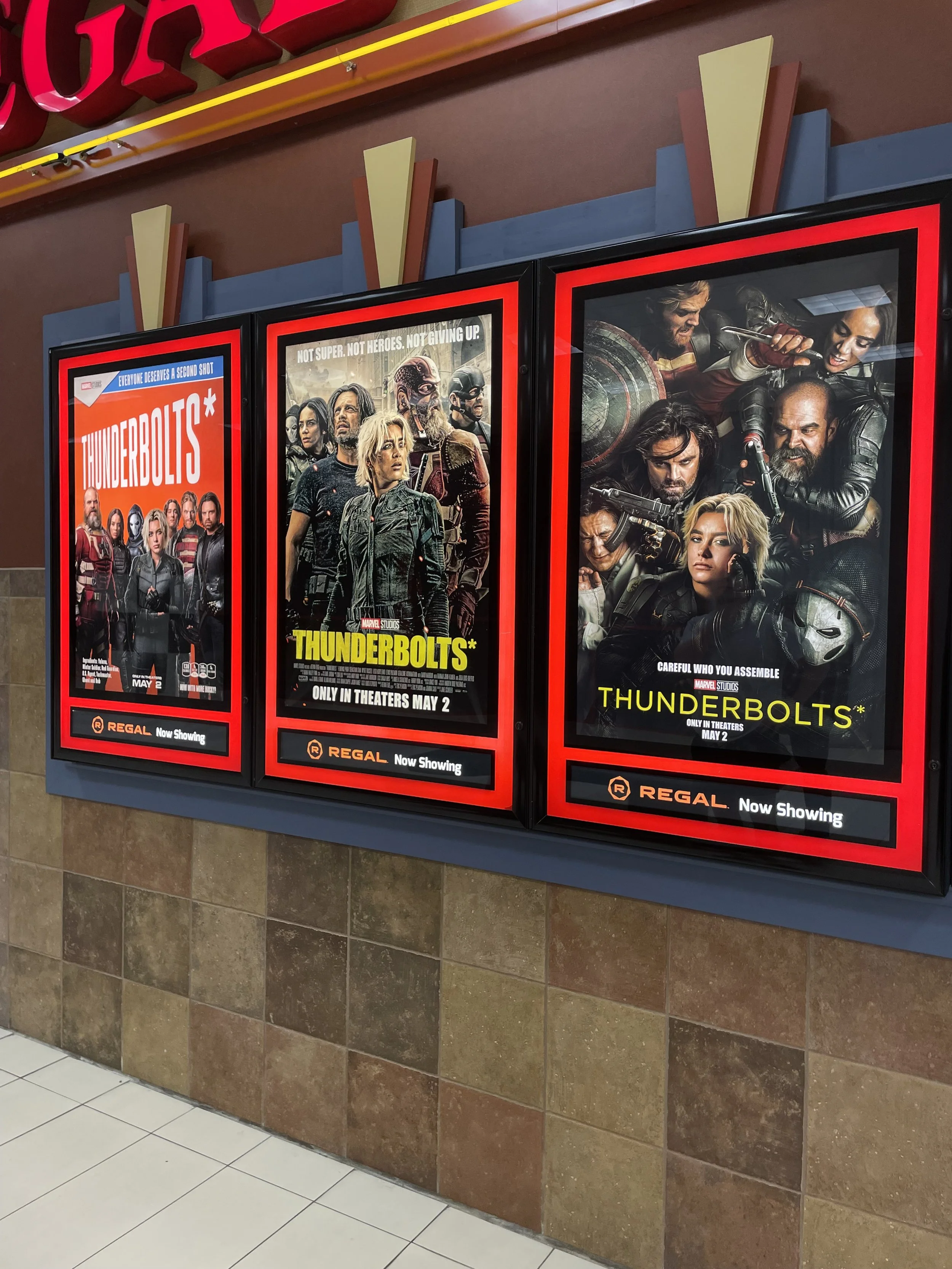The Future of Marvel Looks Bright After The Studio’s Darkest Film Yet
Thunderbolts is in theaters now. Photo by Thomas Mansfield ‘27
While fans of superhero movies have been mired in a drought of quality films for years, Marvel Studios' newest addition to their Cinematic Universe takes on far darker themes that have made for their best title in years, and may revive the dying superhero genre.
Marvel’s “Thunderbolts*” opened on May 2 and has received overwhelmingly positive reviews, scoring 88% from critics and 94% from audiences on Rotten Tomatoes. The film earned over $162 million globally in its opening weekend, according to Deadline. Although not an outstanding opening weekend based on Marvel’s past success, positive reviews and ratings will undoubtedly further the film’s shelf life.
Fans have shown their appreciation towards Marvel’s attempt to address dark themes of depression and mental health with some of their best writing in years. It is so far from that of recent Marvel titles that it sometimes does not even feel like a superhero movie, with minimal action.
“Thunderbolts*” establishes its dark tones very early on with its main character, Yelena Bolova, played by Florence Pugh. Sitting atop a building in Malaysia called The Merdeka, the second-tallest building in the world, Yelena has an internal monologue. In it, she says that there is something wrong with her, almost as if there is a void within her that is endlessly growing and taking over her. Then, she jumps off the building and free-falls.
Although she is saved by a parachute, opening the film with this sequence was somewhat jarring as a Marvel fan. Going in, I knew this film would focus on darker tones, but touching on themes of depression that Marvel tends not to address was an eye-opener. In a phase of Marvel that has been held back by poor writing and an overly comedic tone, beginning the film in this manner showed that this film would have a soul, unlike its counterparts of recent memory.
This focus on mental health struggles continues with the team's other characters. Like Yelena, who was trained to be a child assassin and drinks to deal with her troubled past, her fellow members of the Thunderbolts team have struggles of their own. John Walker, portrayed by Wyatt Russell, is an ex-Navy SEAL-turned-Captain America-turned terrorist after he killed an innocent man on a mission, causing him to lose his titles and his family. Bob Reynolds, played by Lewis Pullman, suffered abuse from his father and used drugs to cope with his depression and anxiety.
Although including characters with troubled pasts is essential, inclusion is only half the battle to completing a strong story, and “Thunderbolts*” does just that.
In the film's third act, Bob is taken over by a dark entity called The Void and covers Manhattan in a pitch-black shadow. The Thunderbolts enter this darkness and save Bob by showing him that he is not alone, a theme displayed throughout the movie. Yelena’s father, played by David Harbour, says that when she is with the team, he sees “the light inside of her grow.”
Not only is this advice valuable for its characters, but it also feels as if Florence Pugh is speaking to the viewers. While in the Void, Yelena says to Bob, “We have to let it out, we have to stay together… If it doesn’t make the emptiness disappear, I promise it will make it better.”
In an age where mental health awareness is a vital part of society, Marvel's platform to let fans know that they are not alone made me love this film so much more.
Addressing these serious tones made for the best Marvel movie in years and one of my favorites in the Cinematic Universe. Moving away from the quips and terrible CGI that have brought shame to the Marvel name will be the key to finding success in the sixth phase of the MCU.
One of the main issues Marvel Studios has faced is an oversaturation of content, releasing 3-4 low-quality films a year. Learning from their mistakes, Marvel announced that they will be focusing on a schedule that features two films per year, a plan that will no doubt improve the quality of the MCU’s much-anticipated sixth phase. Suppose the company can effectively continue this trend and prevent this amazing film from being an outlier. In that case, Marvel can return to its former glory, and I predict they will.
